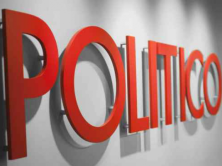
(Credit: NPR)
NPR should have added “three little words or even just two” in its reporting on Robert Mueller’s report, Elizabeth Jensen, the NPR public editor wrote. “NPR should be maintaining an appropriate skepticism about exactly what’s in the report by keeping its language precise: We know what Barr has said about the report; we don’t yet know all of what the report itself says,” Jensen wrote.
Specifically, NPR should have noted it hasn’t seen the Mueller report yet and was only reporting on Attorney General William Barr’s four-page letter about receiving the report.
Many listeners and readers complained about NPR’s coverage, including a March 26 All Things Considered report saying Mueller’s report was “clearing President Trump of coordinating with Russia,” she wrote.
While All Things Considered executive producer Carline Watson argued to Jensen that “the answer from the Special Counsel was no” to whether Trump conspired, Jensen said NPR should have flagged it was reporting based on Barr’s letter, not Mueller.
“Citing sources is a basic tenet of fact-based journalism,” Jensen wrote. “If NPR has not seen the report and has no more direct statement from Barr or Mueller, then NPR should cite its source, which is the Barr letter, not the special counsel’s report.”
Jensen added that NPR should use that same precise language when reporting on the Jussie Smollett case. An NPR spokesperson declined to comment further to iMediaEthics.






